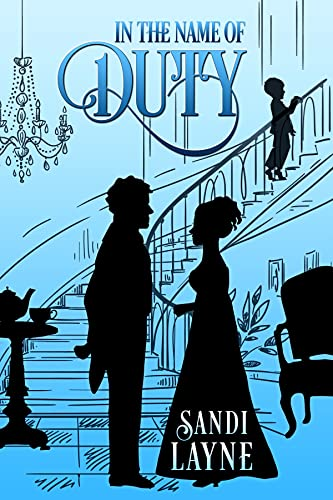I wrote this story for Alec Frazier. He intended to do an anthology of stories about disability for his second book, but it never worked out.
Now that he's gone, I've decided to share it, dedicated to his memory.
Abide, my friend.
.¸¸•.¸¸.•´¯`• (¯`•ღ•´¯)•´¯`•.¸¸.•.¸¸.
Revolution
by Lissa Bryan
Holloway Prison, 1913
She didn’t look up when the cell door opened.
“Miss Billinghurst?”
May did not reply. She kept her eyes on the featureless
white wall in front of her and tried to steel herself for the violation that
might be to come.
The man crouched down beside her. “Miss Billinghurst, I’d
ask if you would speak with me.”
He was using her name, and that was unusual. She’d gotten so
used to being referred to by her inmate number. She raised her eyes and looked
into his face. He was a young one, his cheeks ruddy pink under a shock of
ginger hair, his eyes wide and blue.
“Why would I do that?”
“I hope we might come to some…. agreement that might make
your stay here more tolerable.”
Tolerable for him, or tolerable for her? Did the tortuous
methods of the prison trouble his conscience? May turned back to the wall.
“Thank you, but that won’t be necessary.”
She heard him take in a deep breath. “Miss, do you think we enjoy force-feeding you ladies?”
“Actually, I do.” She remembered the fierce grin of the wardress
who’d sat on her legs – knowing she could not use them anyway – and the cold
contempt in the eyes of the doctor who forced the rubber tube through her nose
and down her throat. She’d managed not to weep in front of them, at least.
She’d kept that shred of pride.
The door opened again and she saw from the corner of her eye
two guards carry in a small table and chairs. A pang of longing stuck her,
longing to get off this cold cement floor and sit upright once more.
“Please, won’t you join me?” He gestured to the table.
May thought for a moment, then nodded. “Will you help me?”
“Of course.” He slid an arm under her back and one under her
knees to lift her. “No!” she snapped. “Let me stand.”
“But…”
“I can do it. Please, just help me keep my balance.”
He took the hands she offered and pulled, tugging her
upward. For a moment, she struggled to maintain balance, her knees locked, but
she finally managed to hold herself upright. Without being asked, he helped
guide her through the two halting steps to the chair. He pulled it out for her,
a courtesy she wasn’t expecting and it made her smile a bit as she seated
herself.
He took a seat across from her. “They call you the Cripple Suffragette.”
May tilted up her chin. “I suppose I have been called worse.
But you haven’t told me what you’re called.”
“My apologies. I’m Superintendent Dawson. I’ve been
distressed by the reports I’m reading of your time here, and that of the other…
other ladies who were arrested with you.”
“I understand. What’s happened to us should make any but the
most hardened heart distressed.”
“Why were you sitting on the floor?”
“I’m told there’s a rule about not sitting on our beds
during the day, but I’m in my cell all the time because they haven’t taken me
to the workhouse with the other women.”
“Ah, yes. That’s because of your… your… “ Dawson paused for
a moment to clear his throat. “May I ask… What happened to your legs?”
“I had polio as a child. It left me unable to use my legs to
walk without braces and a crutch, but I can use my hands, my mind, and my
voice. I will use every part of me that I can in furtherance of my cause. My
only regret is there is not more of me to give.”
Dawson sat back, shaking his head slightly. “I admit, I do
not understand why you’re doing this. Do you really believe your violence and
destructive behavior will get you the vote?”
It was May’s turn to shake her head. “How long have we been
writing editorials, article, and books, chanting slogans in the streets, giving
lectures and distributing pamphlets, Superintendent? We’ve been asking you for decades now, but you will not listen.
We want the vote. We want changes in law to grant us equality. Now people are
finally hearing us.”
“Do you Suffragettes really believe it will be accomplished
by violence?”
“Again, good sir, we’ve been speaking and writing peaceably
for generations and it’s gotten us nowhere. Only now has real attention been
brought to the matter. Perhaps
the government will realize now that we mean to continue this fight to the
bitter end. When men use bombs in war that lay waste to cities, it is called
glorious and heroic. Why should a woman not employ same weapons as men? We have
not only declared war, Superintendent Dawson. We are a revolution.”
“Revolution.” Dawson chuckled and May felt her eyes narrow.
She’d never get used to being belittled no matter how many times it happened.
But she took a deep breath and reminded herself that it was better to be
underestimated. That way, they never saw it coming.
May shifted in her chair. “May I have back my leg braces and
crutch? I fear catching a chill sitting on the floor all day.”
“You’ve used them as weapons, I’m told.”
May didn’t hold back her smile. “I have. We must all use the
weapons at our disposal. “
“So you may understand why I must decline to arm you.”
“What if I gave you my word as a lady I would not employ
them in that manner during my stay here?”
“Some would say you are not a lady at all, and thus your
word cannot be trusted.”
May closed her eyes. She, more than anyone, knew that she
and her sisters were not considered ladies by their opposition. And having that
distinction stripped from them made them fair game for any sort of
mistreatment. During the last protest, she had seen police officers pull up the
skirts of her fellow Suffragettes and throw them into the mobs of jeering men.
“Can you tell me what this is?” He laid a picture on the
table in front of May, one taken at the last rally. She picked it up, not to
look at herself, but to scan the faces of the ladies with her at the rally,
still smiling, still strong before everything had gone wrong.
“That’s my tricycle. It’s better for protests than a
wheelchair.”
“Where did you get it?”
“I designed it and a friend helped build it. The third wheel
is behind the seat so I can turn it like a rudder, and I pump the two handles
above the wheel to power it forward.”
“There are reports you used it to ram into the crowd
watching the protest.”
May dropped the picture on the table. “Only those who tried
to grope the ladies or interfere with our progress.”
“Police officers trying to arrest them?”
May felt heat rise in her cheeks. “They weren’t simply
trying to arrest them. They beat the ladies in the street like dogs. Any man
who would beat a woman deserves far worse than having his shins bumped with my
tricycle. What happened to me at that rally was--”
When she didn’t continue, be prodded. “What do you mean?”
May’s voice was tight. “I mean, sir, that the policemen
rolled my tricycle down a side alley. They dumped me from the seat onto the
ground as they let out the air from the tires and pocketed the valves. They
left me for the ruffians, laughing as they went.”
For a long moment, he didn’t say anything. His eyes had
widened, and she could almost see the mental gymnastics he was going through as
he tried to justify the police’s actions. “What happened?”
“A group of about five men encircled me, saying vile things.
All I could do was stare them in the eye and dare them to do their worst. But
something in my demeanor must have shaken them because they stopped. One of
them helped me into my tricycle and wheeled me back to my friends.”
“And after that you were arrested?”
May nodded. “The men in the alley said vile things, but the
judge who sentenced me insulted me more greatly when he said I was not like the
other women of my group, hysterical women who were associated with the movement
simply because they ‘sought notoriety.’
As though any woman would seek to be despised by the majority of citizens for
attention.”
“You could have paid the fine and avoided jail,” Dawson
noted.
“Why should I pay a fine when I’ve done nothing wrong? Even
if the fine were only half a pence, I would not pay it.”
“Just as you could avoid being force-fed if you would just
eat.”
"The government authorities may further maim my body by
the torture of force-feeding. They may even kill me in the process for I am not
strong, but they cannot take away my freedom of spirit or my determination to
fight this good fight to the end."
Sharp bangs sounded from the door before it opened.
“Billinghurst, you’re free to go.” The wardress at the door wouldn’t even look
at May as she said it. “Your fine was paid by an anonymous donor.”
“Well, then.” May offered her arm to Superintendent Dawson
as elegantly as though they were at a ball instead of a grim prison cell.
“Shall we?”
“I want to hear the rest of your story,” Dawson said, but he
took her arm and helped her to her feet.
May took her first steps toward the door, toward freedom. “I
dare say you’ll meet me again in similar circumstances and have a chance for
further questioning. The revolution is not yet over.”









